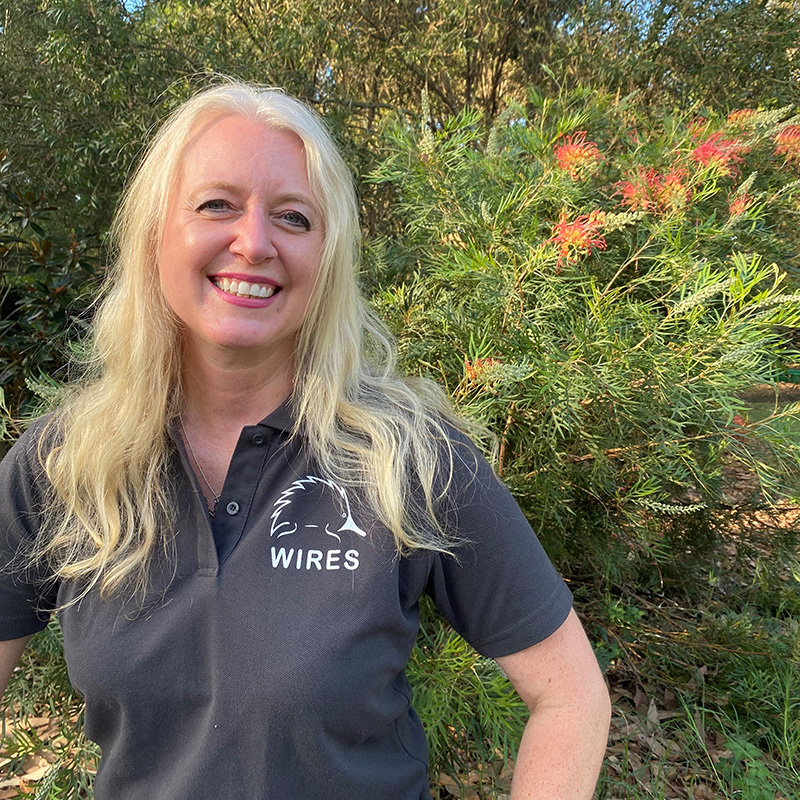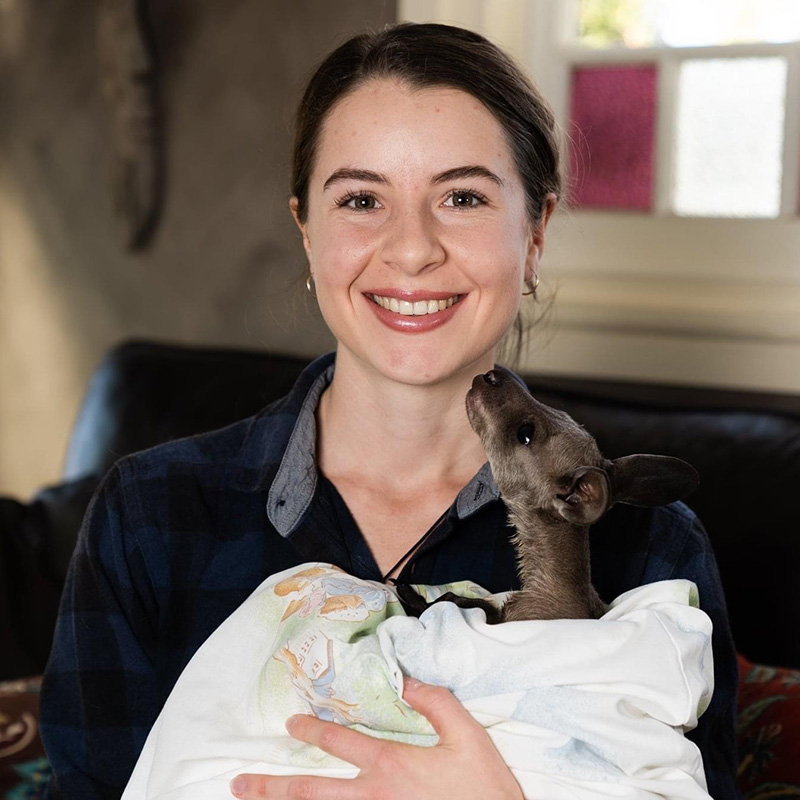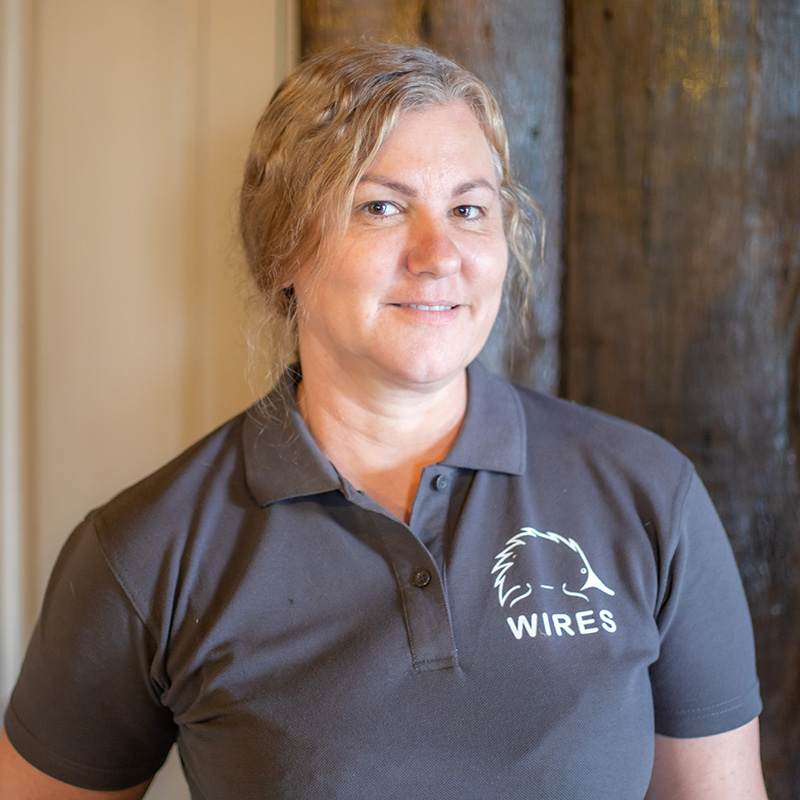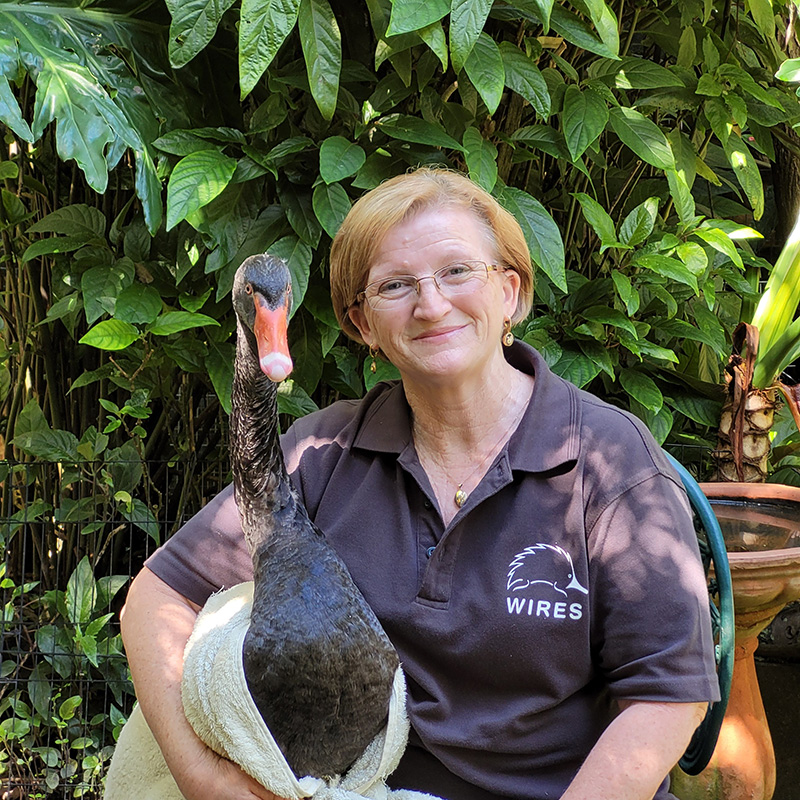Blog
Contact media@wires.org.au for enquiries or call 0416 272 153.
For the latest updates on bushfire recovery projects and emergency response
Read WIRES Emergency Recovery Plan and WIRES National Emergency Response Plan
International Women’s Day 2021
Today is International Womens day and we want to celebrate the amazing efforts of women in the WIRES community. WIRES could not exist without the 2788 female volunteers who use their time, energy and knowledge to rescue, rehabilitate and protect our wildlife. Every day, these women choose to make an impact on the wellbeing of Australia's native animals by creating lasting change on their wellbeing and inspiring positive change in their communities.
We wanted to take some time to highlight some of the amazing women who care for Australia’s native wildlife...
Nichi

As a WIRES volunteer, I aim to make a difference to our native wildlife.
Our native animals face many challenges in today’s society. This is a result of a changing environment, issues created by humans and our progress, and the impact is enormous. I strive to give them a second chance at a normal wild existence, by rescuing, treating and rehabilitating them.
My journey began with wanting to help local wildlife, little did I know it would become such a passion and I would learn so much. Since then, I have gained an enormous amount of knowledge and experience. This has allowed me to take on leadership roles within the WIRES community, run educational talks for schools/organisations, assist in fundraising and help out during the bushfires.
Finding passion mostly in our native birds and reptiles, I also rescue and care for our cute and furry critters as well. I find birds extremely fascinating, as there is such a variety of species and they are so individual. There is nothing more rewarding to me as a WIRES volunteer, than to rehabilitate an animal with an uncertain future, watching it grow or recover, and finally witnessing the moment of its release. It melts your heart and rejuvenates your soul.
I feel privileged to be a part of WIRES and have experiences with animals that many people never have. As a mother of two and a wife to my amazing husband, it is sometimes challenging, but thanks to their support and encouragement, I feel driven to continue to learn and do more for our native animals.
I really enjoy working with our wonderful vets and all of our members, who all share the same passion. I would encourage anyone interested in our native wildlife to get involved. It does not matter how much time you have or how much room you have, as our members all help in their own capacity. The smallest actions can make a huge difference to us and our beautiful creatures, regardless of how little you think it might be. It really is a life changing, for you and our animals.
Georgia
 >
>
There is no doubt that I have always had an admiration for animals, growing up with a myriad of domestic pets and occasional wild family members. However, with my mother being involved with wildlife rescue and care for over 20 years, my fascination and utmost respect for our native Australian animals inevitably became particularly prominent, ultimately prompting me to join WIRES myself.
As a WIRES volunteer, I assist with the rescue and care of many species of birds, reptiles and mammals. Yet, despite having an appreciation for all species, my heart really lies with our incredible and iconic Macropods.
However, working with these majestic animals, and wildlife in general, is rarely cute and fluffy; the façade so many are mistakenly familiar with. It can be challenging, distressing and at times, utterly heart-breaking.
Yet, amidst the losses are some incredible stories of hope and success, instilling a sense of fulfilment and further cementing my passion. Having a positive impact on an animal’s life is my priority, however, I similarly hope that throughout my time as a WIRES volunteer, I can enlighten and encourage others to be just a little bit more wildlife aware.
Julie

I started my journey with WIRES 12 years ago and I don’t regret a single day. I consider it a privilege that I get to raise and help our native wildlife, I never take it for granted.
My favourite and most rewarding part about helping the sick and injured wildlife, is when I get to see them released back into the wild. They never stop to thank you; they just move off into their natural environment and never look back. Wombats can be a little different, they sniff the new burrow out, they might go in and out a couple of times, I always try to tell myself they come back out to say goodbye, but I know it is just them making sure the burrow is right for them.
Sadly, one of the events that have happened since I joined WIRES, was the horrific fires that burned through the Gospers Mountains, it was a tough period to get through living in the middle of it. Not only thinking about how this was affecting my family but the animals I had in care at the time. Once the fires were under control, a local RFS member asked if I could set something up for the native animals that they found in pockets of the burnt-out bush. The support I received from locals was so inspiring. With their help, we were able to set up and monitor feeding stations for the animals. Many of the stations were at the edges of their property along the burnt line of the bush. We were then able to get other WIRES members to set the feeding stations up across the Hawkesbury region.
You don’t have to care for wildlife to help them, looking after the environment is just as important to help them thrive in the wild. Planting natives around the home instead of feeding an unnatural diet. Sadly, some of our animals come into care after losing their mum to the roads. It is the community that gives the young animal a second chance by stopping and checking the pouches. Never think it is too late to stop, a wombat joey has been known to stay alive for 4 days in their mother’s pouch.
The community and individuals that deliver sick or injured animals to WIRES are the ones that make it possible for me to do what I do.
Katrina:

I have been a volunteer rescuer and carer with WIRES for 21 years now and even though I have looked after many animals including Magpies, Currawongs, Lorikeets, Possums, Grey-Headed Flying-Foxes and native ducks, my passion for the Black Swan has always been at the forefront.
When I was quite young, I would come across injured animals and the empathy for them and urge to help this native wildlife was always strong within me. When I was older, I met a few WIRES carers when taking an injured animal into their care. After talking to these amazing people and seeing the work they do, I felt inspired and determined to learn and care about our wildlife.
I will never forget the day, 15 years ago, when a call came in to rescue a 4-day old cygnet. It was a challenging rescue and I cared for this cygnet for 7 months before releasing her and in that time, she had taught me so much.
Over time more Swans came into my care and I found that not one swan is the same as the other, they all have different personalities and are extremely intelligent. It can be quite challenging and very time-consuming looking after Swans. Most often, every single one that comes into care is needing a different treatment and care plan than the previous swan, plus the initial set up of enclosures and ponds are different, depending on their injury.
When it's time for their release, you have many emotions going through you: elated for them, sad, as you will miss them but once you see them enter the water, swim around, have a few warm up flaps then run and take off, soaring high into the sky, then land back into the water, you feel the freedom that they are feeling, getting another chance of a life back out in the wild.
As I walk away from each release, I feel so grateful that being part of the WIRES organisation has given me the opportunity to contribute to the environment in a fulfilling and rewarding way. To be able to apply my passion, knowledge and skills in helping animals, plus constantly learning new things about them, empowers me to keep giving as much of myself as I can to all the native wildlife. They deserve it.
Search
Newsletter
Stay in touch and get our regular rescue stories, WIRES updates and a free copy of our 15 Ways to Help Wildlife ebook
Recent Posts
- Emergency Response Training for Wildlife Volunteers
- WIRES Introduces New Wildlife Rehabilitation Governance Courses in Collaboration with NPWS
- Community Support for Post-Bushfire Recovery of Wildlife in the Greater Blue Mountains
- Research Grants Program-2023 Recipients Announced
- National Koala Conference
- Nature Conservation Council's Bushfire Conference
- Support Stronger Nature Laws
- Helping Endangered Cockatoos: WIRES Grant Success Story
- Landmark Conservation Project Ensures The Future of The Northern Bettong
- Wildlife Road Collisions Unveiled
